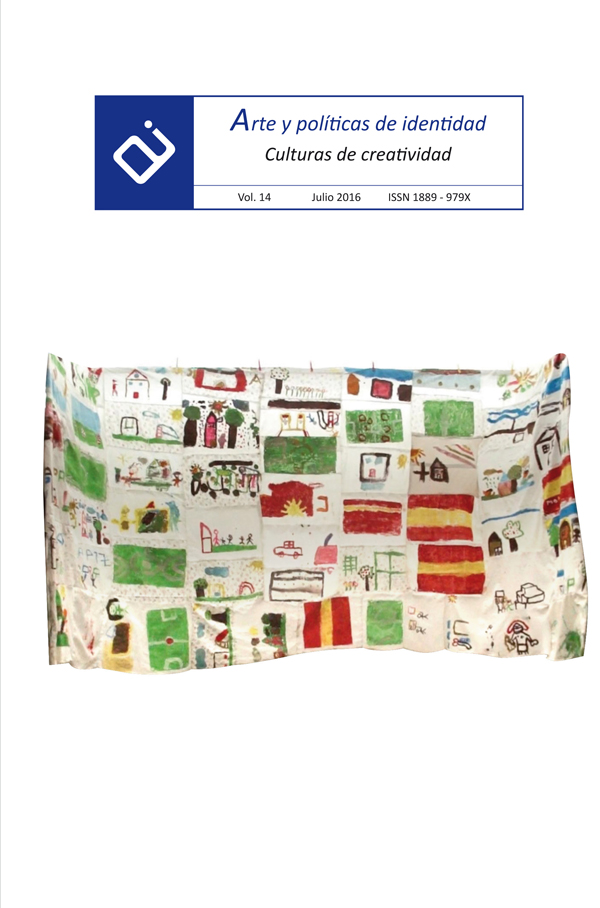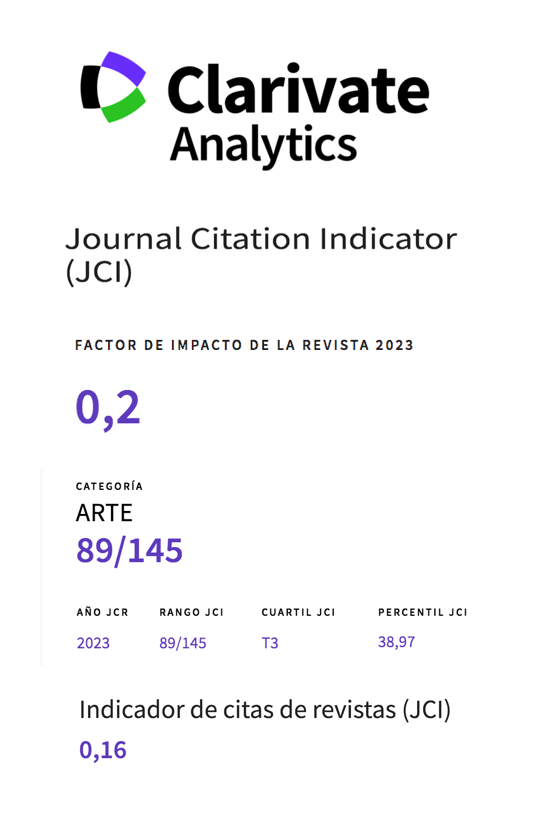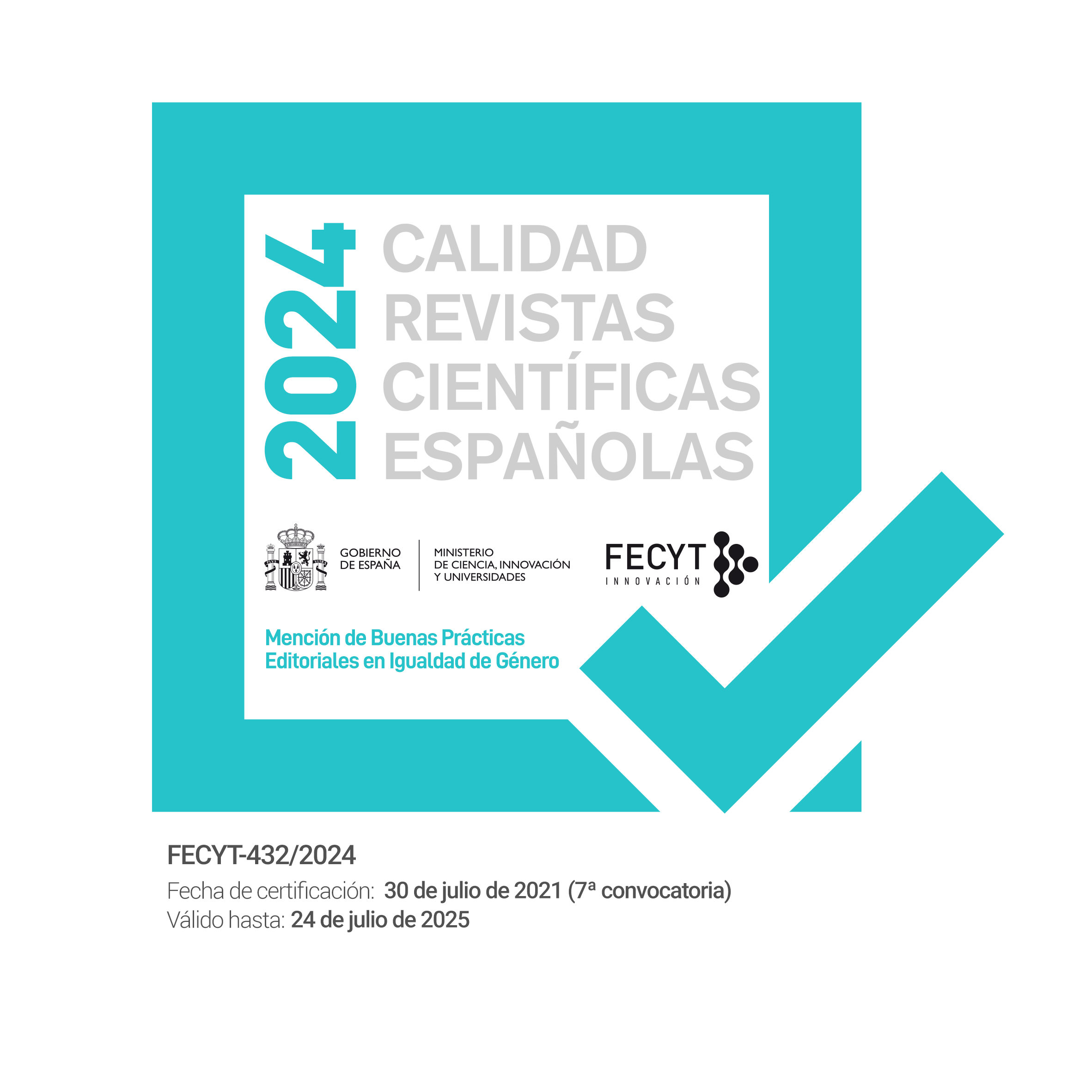From Worries and Artistic Creation, to Reflections from Non Formal Educational Practices
Abstract
This article aims to show the reflections of the authors about their own teaching practice. The road that run from concern and artistic creation, through education (as students and nonacademic teachers) to its phases as researchers in arts education.The authors want to visualize moments of tension and difficulties they have had to spend in their educational practices, but also the knowledge they have generated through these experiences that serve to create a hybrid identity where they can question their own practice in relation to art. To shape and to analyze in depth the experiences, they will be listed in the three phases Paul Klee (1979) used to describe the process of creation, which are appropriated to make sense of the learning process of the teaching practice.
Therefore, the article will present a dialogic character, since reflections are represented by way of cross talk between the authors, in order to show the realities surrounding the non academic art education.
Downloads
-
Abstract325
-
PDF (Español (España))356
References
Acaso, M. (2009). La educación artística no son manualidades: nuevas prácticas en la enseñanza de las artes y la cultura visual. Madrid: Los libros de la Catarata.
------ (2013). rEDUvolution. Hacer la REVOLUCIÓN en la EDUCACIÓN. Barcelona: Paidós
Acaso, M., Ellsworth, E. y Padró, C. (2011). El aprendizaje de lo inesperado. Madrid: Libros de la catarata.
Agra, M. X. (2003) La formación artística y sus lugares. Educación artística: revista de investigación (EARI) (1), 67- 82. Recuperado el 26 de julio de 2016 de https://dialnet.unirioja.es/servlet/articulo?codigo=4353043)
Bamford, A. (2009). El factor ¡WUAU! El papel de las artes en la educación. Barcelona: Octaedro.
Bolívar, A. (2007) La formación inicial del profesorado de secundaria y su identidad profesional. Estudios sobre educación (12), 13- 30. Recuperado el 11 de noviembre de 2013 de http://dadun.unav.edu/bitstream/10171/8988/1/12%20Estudios%20Ea.pdf)
Bourriaud, N. (2009). Postproducción: la cultura como escenario: modos en que el arte reprograma el mundo contemporáneo. Buenos Aires: Adriana Hidalgo.Cortés, P. (2013). La etnografía narrativa. recuperado el 7 de octubre de 2013 de http://historiasdevida2013.wordpress.com/comunicaciones/
Duarte, F., Lopes, A. y Pereira, F. (2012). Cruzando conversas, descruzando ideias: os efeitos do percurso de vida numa identidade docente valorizada. III Jornadas de Historias de Vida en Educación, Oporto. Recuperado de http://www.fpce.up.pt/iiijornadashistoriasvida/pdf/2_Cruzando%20conversa.pdf
Goodson, I. F. (Ed.). (2004). Historias de vida del profesorado. Barcelona: Octaedro.
Hernández, F. (Coord.). (2011). Aprender a ser docente en secundaria. Barcelona: Octaedro.
Hernández, F. y Sancho, J.M. (2015). Dennis Atkinson. Pedagogía de lo desconocido, Cuadernos de Pedagogía (454), 34- 39.
Klee, P. (1979). Teoría del arte Moderno. Buenos Aires: Caldén
Works published in this journal are subject to the following terms:
- The Service of Publications from the University of Murcia (publishing house) keeps the published works’ copyrights, and favors and allows the reuse of these works under the license indicated in point 2.
- Works are published in the journal’s online edition under the license Creative Commons Reconocimiento-NoComercial-SinObraDerivada 3.0 España(texto legal). They can be copied, used, disseminated, transmitted and publicly exhibited, as long as: i) the author and original source of publication are cited (journal, publishing house and work’s URL); ii) they are not used for commercial purposes; iii) the existence and specifications of this license are mentioned.
3. Conditions for auto-file. It is allowed and encouraged that authors share electronically their pre-print version (the pre-reviewed version) and /or post-print version (the reviewed and accepted version) of their Works before the publication, since it promotes its circulation and dissemination. RoMEO color: green.










